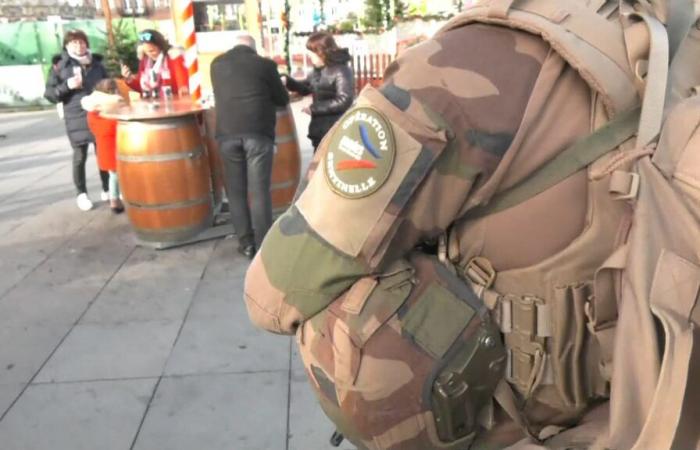
In Colmar (Haut-Rhin), this Saturday, December 21, Thierry Queffélec, the prefect of Haut-Rhin, came to the Christmas market to take stock of security measures, after the car-ramming attack in Magdebourg in Germany.
After the car-ramming attack on Friday, December 20, on a Christmas market in Magdeburg in Germany, the question of securing these places in France arises again. Particularly in Alsace, where five people died and eleven were injured during an attack in Strasbourg in December 2018.
In Colmar (Haut-Rhin), Éric Strumann, the mayor of the city, and representatives of the police welcomed Thierry Queffélec, the prefect of Haut-Rhin, on Saturday December 21. The latter came to take stock of security measures, while the level of the Vigipirate plan is at its highest in the thirty Alsatian markets, which should accommodate 4 million people.
“We had penetration tests,” he told BFM Alsace. Because if a device “can be very coherent on paper”, it must be “tested” to be certain. An anti-terrorist exercise therefore took place in situ in a village, he revealed.
“The visitors were surprised at first,” he remarked, “but they were aware that it was necessary to make our teams work in reality.”
A “reassuring” military presence
The visitors met at the Colmar market told our microphone that they necessarily had in mind the attack on the Magdeburg Christmas market, but wanted to continue living. “Overall we always look around us a little, we pay a little attention,” says one visitor, while another affirms that the presence of soldiers is “reassuring”.
“We think of the deceased people. I hold the hands of my children, we pay attention to them,” explains a passerby.
Another emphasizes that she had no “hesitation”: “We looked at what protection there was. We saw that there were security guards, that didn't stop us from coming.”
In Strasbourg, the presence of law enforcement is also particularly important. To secure this event, which attracts more than three million visitors in one month, more than 1,000 police or gendarmerie officers and soldiers from Operation Sentinel are mobilized every day, in addition to firefighters and civil security.
Kévin Drouant with Clément Boutin





